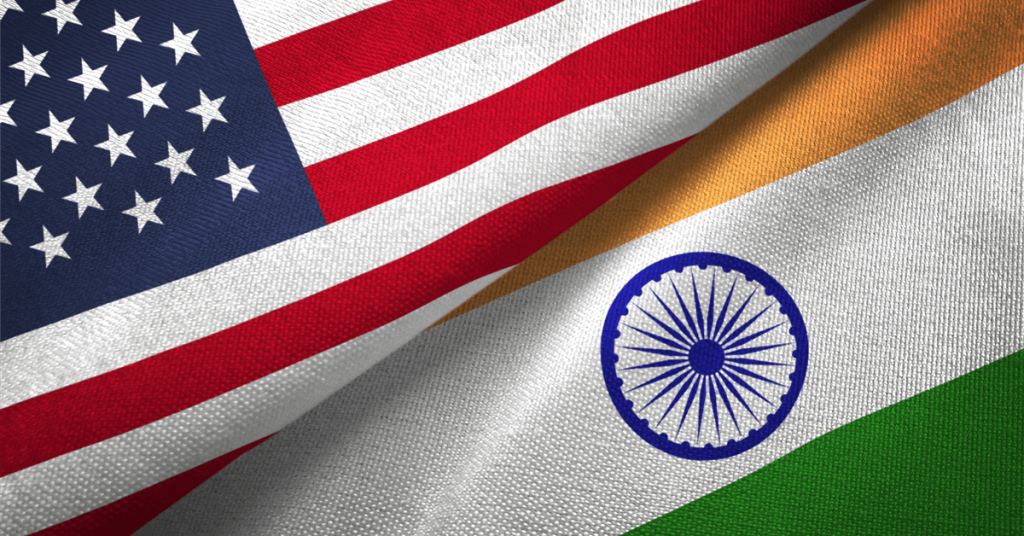India wants to increase purchase of oil and gas from the US, Commerce Minister Piyush Goyal said, amid efforts to persuade Washington to lower tariff on country’s exports and secure a trade deal.
“We expect to increase our trade with the US on energy products in the years to come,” Goyal said at an event in New York. “And being close friends, natural partners, our energy security goals will have a very high element of US involvement.”
The minister is visiting US to meet his counterparts after President Donald Trump imposed 50% tariffs on Indian exports last month, partly to penalize New Delhi for continuing to buy Russian oil. The move upended decades of US diplomacy with India and came amid favorable signs after resumption of trade talks.
Trump administration has maintained that India is helping to fund Vladimir Putin’s war in Ukraine. India has been the largest buyer of Russian seaborne crude as the discounted barrels have helped the world’s third largest oil consumer keep its import bill in check.
Stepping up oil and gas imports from the US will help reduce the trade imbalance between the two countries and bolster the trade negotiations.
Relations between New Delhi and Washington seemed to be back on track after Trump called Prime Minister Narendra Modi on his birthday. But it ran into rough weather again after Washington slapped a $100,000 fees on new H-1B visa used mainly by Indian tech workers.
Goyal said US had a crucial role to play in diversifying India’s energy security goals, and ensuring stability for the import-dependent nation.
Generated by readers, the comments included herein do not reflect the views and opinions of Rigzone. All comments are subject to editorial review. Off-topic, inappropriate or insulting comments will be removed.
element
var scriptTag = document.createElement(‘script’);
scriptTag.src = url;
scriptTag.async = true;
scriptTag.onload = implementationCode;
scriptTag.onreadystatechange = implementationCode;
location.appendChild(scriptTag);
};
var div = document.getElementById(‘rigzonelogo’);
div.innerHTML += ” +
‘‘ +
”;
var initJobSearch = function () {
//console.log(“call back”);
}
var addMetaPixel = function () {
if (-1 > -1 || -1 > -1) {
/*Meta Pixel Code*/
!function(f,b,e,v,n,t,s)
{if(f.fbq)return;n=f.fbq=function(){n.callMethod?
n.callMethod.apply(n,arguments):n.queue.push(arguments)};
if(!f._fbq)f._fbq=n;n.push=n;n.loaded=!0;n.version=’2.0′;
n.queue=[];t=b.createElement(e);t.async=!0;
t.src=v;s=b.getElementsByTagName(e)[0];
s.parentNode.insertBefore(t,s)}(window, document,’script’,
‘https://connect.facebook.net/en_US/fbevents.js’);
fbq(‘init’, ‘1517407191885185’);
fbq(‘track’, ‘PageView’);
/*End Meta Pixel Code*/
} else if (0 > -1 && 73 > -1)
{
/*Meta Pixel Code*/
!function(f,b,e,v,n,t,s)
{if(f.fbq)return;n=f.fbq=function(){n.callMethod?
n.callMethod.apply(n,arguments):n.queue.push(arguments)};
if(!f._fbq)f._fbq=n;n.push=n;n.loaded=!0;n.version=’2.0′;
n.queue=[];t=b.createElement(e);t.async=!0;
t.src=v;s=b.getElementsByTagName(e)[0];
s.parentNode.insertBefore(t,s)}(window, document,’script’,
‘https://connect.facebook.net/en_US/fbevents.js’);
fbq(‘init’, ‘1517407191885185’);
fbq(‘track’, ‘PageView’);
/*End Meta Pixel Code*/
}
}
// function gtmFunctionForLayout()
// {
//loadJS(“https://www.googletagmanager.com/gtag/js?id=G-K6ZDLWV6VX”, initJobSearch, document.body);
//}
// window.onload = (e => {
// setTimeout(
// function () {
// document.addEventListener(“DOMContentLoaded”, function () {
// // Select all anchor elements with class ‘ui-tabs-anchor’
// const anchors = document.querySelectorAll(‘a .ui-tabs-anchor’);
// // Loop through each anchor and remove the role attribute if it is set to “presentation”
// anchors.forEach(anchor => {
// if (anchor.getAttribute(‘role’) === ‘presentation’) {
// anchor.removeAttribute(‘role’);
// }
// });
// });
// }
// , 200);
//});

